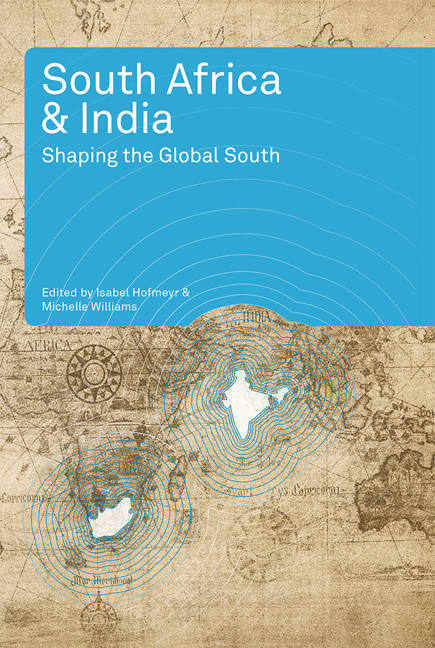Book contents
- Frontmatter
- Contents
- Acknowledgements
- Abbreviations and Acronyms
- Introduction
- Historical Connections
- Chapter 1 Gandhi's Printing Press: Indian Ocean Print Cultures and Cosmopolitanisms
- Chapter 2 Steamship Empire: Asian, African and British Sailors in the Merchant Marine c. 1880–1945
- Chapter 3 The Interlocking Worlds of the Anglo-Boer War in South Africa and India
- Chapter 4 The Disquieting of History: Portuguese (De)Colonisation and Goan Migration in the Indian Ocean
- Chapter 5 Monty … Meets Gandhi … Meets Mandela: The Dilemma of Non-violent Resisters in South Africa, 1940–60
- Socio-political Comparisons
- Conclusion
- Notes and References
- About the Authors
- Index
Chapter 5 - Monty … Meets Gandhi … Meets Mandela: The Dilemma of Non-violent Resisters in South Africa, 1940–60
from Historical Connections
Published online by Cambridge University Press: 21 April 2018
- Frontmatter
- Contents
- Acknowledgements
- Abbreviations and Acronyms
- Introduction
- Historical Connections
- Chapter 1 Gandhi's Printing Press: Indian Ocean Print Cultures and Cosmopolitanisms
- Chapter 2 Steamship Empire: Asian, African and British Sailors in the Merchant Marine c. 1880–1945
- Chapter 3 The Interlocking Worlds of the Anglo-Boer War in South Africa and India
- Chapter 4 The Disquieting of History: Portuguese (De)Colonisation and Goan Migration in the Indian Ocean
- Chapter 5 Monty … Meets Gandhi … Meets Mandela: The Dilemma of Non-violent Resisters in South Africa, 1940–60
- Socio-political Comparisons
- Conclusion
- Notes and References
- About the Authors
- Index
Summary
The time for personal contact with the great leader had now arrived. I [flew] to Wardha with Dadoo in order to receive more precise guidance in regard to future plans …. To be with Mahatma Gandhi was like the vision of a dream. I was not going to meet a stranger. His teachings had become part and parcel of my life. His autobiography had been my Bible, and in my leisure time I have been reading it over and over again …. Gandhiji was sitting cross-legged with the spinning wheel in front of him. We had come to meet the Father of the Indian Nation, and the welcome we received was naturally that of a dear father to his affectionate children. We will never forget the warm smile which lighted upon both of us – the smile of the hero we admired for thirty years. We gave him an account of the progress of the struggle, and were quite surprised to find that, in the midst of his multifarious activities, he had found time to keep in touch with the latest developments of our satyagraha movement …. Throughout our talk he kept on emphasising the central lesson of the satyagraha movement. He asked us always to remember that non-cooperation was not the weapon of those who found a shelter in a negative attitude of life; it was a most positive action leading straight to success if the principles were not compromised on the way. India recovered her freedom by clinging to the principles of nonviolence. South African Indians, he said, would see the milky way if they followed the example of the mother country. He also advised patience. Success never comes in a flood, he said (Shukla, 1951).
Doctor G. M. ‘Monty’ Naicker's recollection of this meeting in April 1947 underscores his reverence for Mahatma Gandhi. Gandhi did not (re)appear from nowhere. The new inheritors of the Natal Indian Congress (NIC) and Transvaal Indian Congress (TIC) held Gandhi in the highest esteem and paid homage to him at every opportunity. In some ways this marked a shift from the 1930s, when the agents-general held sway in local politics and the ‘moderates’ held the leadership of the NIC and TIC.
- Type
- Chapter
- Information
- South Africa and IndiaShaping the Global South, pp. 105 - 124Publisher: Wits University PressPrint publication year: 2011



